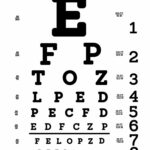The Book of Revelation, a text often shrouded in eschatological mystery, paints a vivid, sometimes unsettling, picture of the end times. Within its symbolic narratives and prophetic pronouncements, many seek guidance on a myriad of contemporary issues. One such query, pertinent in our age of ubiquitous body modification, concerns the permissibility of tattoos. Does Revelation offer any explicit directives regarding this practice? Let’s delve into the scriptural depths and explore potential interpretations, keeping in mind the context and literary style of this apocalyptic work.
The Absence of Explicit Proscription: A Telling Silence?
Perhaps the most striking aspect of Revelation in relation to tattoos is the sheer lack of direct mention. The text is replete with imagery of markings, seals, and signs, but none unequivocally condemn or condone the practice of permanently inking the skin. This conspicuous absence could suggest that tattoos, as we understand them today, were not a primary concern of the author or the intended audience. It is vital to note that the cultural landscape of the first century differed dramatically from our own. The nuances of self-expression through body art were likely distinct, and therefore, a direct parallel might not be readily drawn.
Marks, Seals, and the Beast: Decoding the Symbolism
Revelation introduces us to the concept of “marks” and “seals,” often imbued with profound spiritual significance. The “seal of God” is placed on the foreheads of the righteous, signifying divine protection and allegiance. Conversely, the “mark of the beast” becomes a sign of submission to the Antichrist and a harbinger of eternal damnation. This imagery raises a critical question: Could tattoos, in certain contexts, be interpreted as analogous to these symbolic markings? If a tattoo represents a rejection of God or an embrace of idolatry, one might argue that it aligns with the spirit of the beast’s mark. However, to equate all tattoos with this diabolical sign would be a sweeping generalization, ignoring the diverse motivations and meanings behind contemporary body art.
The Body as Temple: An Indirect Admonition?
While Revelation itself remains silent on the specific topic of tattoos, other biblical passages may offer indirect insights. The apostle Paul, in his epistles, frequently emphasizes the concept of the body as a temple of the Holy Spirit. This notion suggests that believers should treat their physical forms with reverence and respect. Could excessive or inappropriate tattooing be construed as defiling this “temple”? This is a matter of personal conviction and discernment. If a tattoo causes one to stumble spiritually or compromises their witness for Christ, then it may be deemed incompatible with Christian principles. Conversely, if a tattoo serves as a reminder of faith or a means of expressing deeply held beliefs, it may not necessarily violate the spirit of this admonition.
Motivations and Intentions: The Heart of the Matter
Ultimately, the question of whether tattoos are acceptable within a Christian worldview hinges on the underlying motivations and intentions. The Bible consistently emphasizes the importance of the heart. A tattoo motivated by vanity, rebellion, or a desire to conform to worldly trends may be viewed differently than one inspired by faith, remembrance, or artistic expression. The scriptures caution against allowing outward appearances to dictate inner values. The focus should always remain on cultivating a character that reflects the love and grace of Christ, irrespective of external adornments.
Cultural Context and Individual Liberty: Navigating the Nuances
It is imperative to acknowledge the evolving cultural landscape when grappling with such nuanced issues. Tattoos, once relegated to the margins of society, have become increasingly mainstream. What was once considered taboo is now often seen as a form of personal expression. In light of this shift, Christians are called to exercise discernment and grace. While holding fast to biblical principles, they must also be mindful of the potential for legalism and judgmentalism. The Bible grants believers a degree of liberty in matters of personal preference, so long as these choices do not violate core tenets of faith or cause harm to oneself or others.
A Call to Discernment and Humility: A Concluding Reflection
Revelation, with its symbolic language and enigmatic pronouncements, does not offer a definitive answer regarding the permissibility of tattoos. Instead, it challenges us to engage in thoughtful reflection and prayerful discernment. The ultimate decision rests with each individual, guided by the Holy Spirit and informed by biblical principles. As believers, we are called to exercise humility, recognizing that our understanding of scripture is always incomplete. Let us approach this topic with grace, seeking to edify one another rather than engaging in divisive debates. May our choices, whether regarding tattoos or any other matter, be motivated by love and a desire to glorify God in all that we do.









Leave a Comment